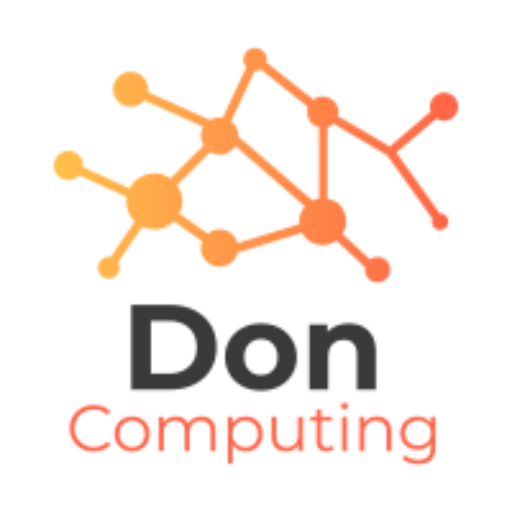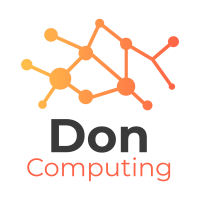don computing pty ltd
Computer simulation technology is experiencing an increasing return, as computer-aided fluid dynamics, better known as CFD, is used for a variety of applications in manufacturing, mechanical engineering, construction and other industries. In particular, computerized fluid dynamics allows engineers to test and improve the performance of products where flow, turbulence and heat transfer are critical to calculations. Changing these variables and studying simulation results can help engineers to find optimal designs based on flow flows. This represents an increasing adoption of this technology in a number of sectors, such as aerospace, automotive, manufacturing and aerospace.
Fluid Simulation
Computational Fluid Dynamics (CFD) is extensively used by engineers to simulate real-world fluid dynamics scenarios, assessing the impact of various factors like temperature, pressure, and humidity on designs and procedures. It plays a crucial role in analyzing and providing solutions for fluid flow processes, including bio-inspired designs. CFD utilizes simplified versions of the Navier-Stokes equations for efficient computer simulations, especially in turbulent flows, and leverages parallel and cloud-based computing for diverse applications in technology and research. It’s integral in chemical engineering for calculating fluid flows and chemical reactions. Additionally, CFD, combined with data science techniques, enhances understanding and development in fields like gas centrifuges. The discipline also emphasizes the importance of error and uncertainty in fluid mechanics, employing numerical methods to solve fluid mechanical problems.
Solid Simulation
Solid modeling, a key technique in CAD, is essential for rapid prototyping, digital archiving, and reverse engineering in manufacturing. It reconstructs physical objects for mechanical analysis, supporting geometric queries corresponding to real-world objects. Unlike wire or surface modeling, solid modeling ensures accurate surface intersections, providing a more defined and reliable representation of the object. This technique includes various operations like boolean, surface, and parametric modeling, aiding in automating complex technical calculations in design. Solid modeling, evolving from simple 2D to advanced 3D representations, is crucial in CAD systems for designing and analyzing machine components. It not only models geometric shapes but also their physical properties, playing a vital role in identifying design weaknesses and improving manufacturing processes.
Process Simulation
Don Computing specializes in process simulation, a software-based representation of various technical processes, crucial in fields like chemical engineering and manufacturing. This simulation involves model-based approximations for a range of temperatures and pressures, essential for designing and optimizing industrial chemical processes. Their approach integrates Multiphysics model development, encompassing computational fluid dynamics (CFD), molecular modeling, and automation, to enhance the design and optimization of processes like catalytic pharmaceutical processes. This comprehensive understanding and application of process simulation and related technologies position Don Computing at the forefront of innovation in chemical processing and engineering, techno-economic, life cycle, and social sustainability assessments..
Reservoir Simulation
Don Computing is advancing in the field of reservoir simulation, focusing on developing next-generation modeling and calculation methods for complex challenges in memory simulation. This includes techniques for unstructured reservoir simulation, scaling permeability in well regions, and multi-phase drilling and flow models. Reservoir simulation, a key part of reservoir engineering, uses computer models to predict fluid flow through porous media, encompassing geological modeling, fluid property handling, and production data analysis. Don Computing’s expertise extends to simulating reservoir desorption and control, comparing new and conventional models, and providing practical application examples. Their state-of-the-art framework for reservoir management integrates simulation, geostatistical data assimilation, and optimal operation strategies. Additionally, Don Computing specializes in modeling advanced processes like miscible injection foam and low salinity, offering practical guides on transient flow analysis and well testing.
Molecular Simulation
Since the first trials of structure-based drug design four decades ago, molecular modeling techniques have been developed for drug design with increasing computing power to obtain structural and biological information about active ingredients and potential target molecules. Theoretical models discuss reactivity, reaction dynamics, catalysis, optical and electronic properties of molecular materials and nanostructures. Molecular Modeling covers all aspects of molecular modeling, including life science modeling, material modeling, new techniques of computer chemistry, parts of the enzyme that are not involved in the reaction, advanced organic chemistry, pharmaceutical chemistry, molecular mechanics and biomolecular force fields (FF). Molecular modeling methods have been proved to be a powerful tool and excellent complement to experiments to extract the relationships between the structure and function of biofunctional polymers. Molecular modelling is considered an integral part of contemporary drug discovery and development processes.
Automation of Simulation
Artificial intelligence and knowledge-based engineering systems are revolutionizing product and process design through design automation. This approach not only captures technical knowledge in system rules, reducing errors and improving design quality, but also streamlines the design, implementation, monitoring, and control of industrial machinery and processes. In fields like mechanical engineering, particularly in pharmaceutical and medical device industries, automation is crucial for cost-effective and efficient systems. Design automation solutions reduce costs, lead times, and enhance customer satisfaction by improving team efficiency. Don Computing specializes in integrating automation in software processes, leveraging CAD and PDM tools to optimize manufacturing and supply chain management. Their expertise in automation engineering ensures effective design and manufacturing integration, enhancing product development and market competitiveness.




